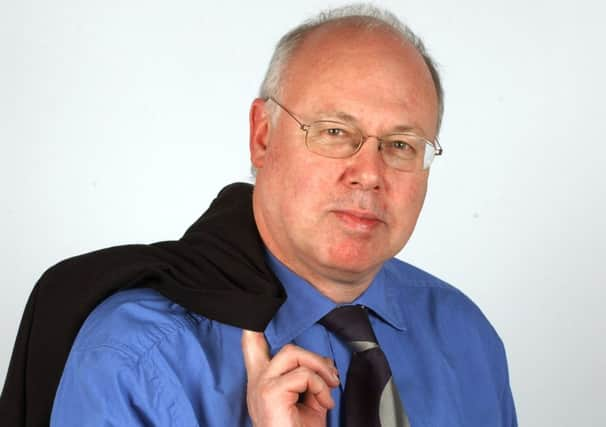Comment: Don’t expect bull run to ease before 2016


Neither America nor Germany has any interest in a serious fight with Putin. Regular readers will know I am pessimistic about the global economy. Eurozone deflation, a British recovery powered by consumer debt, and the implosion of the Chinese property boom will all conspire to bring things to a halt. Nevertheless, I still think that the boom in equities has a long way to go. Let me explain.
The current bull run has lasted five years. But that’s nothing. Stock prices rose from 1990 till 2000, a whole 117 months. Nor is the FTSE anywhere near overvalued – the price-earnings ratio is only a point above the ten-year average. Besides, history suggests that punters keep their nerve till a new set of highs is fully established. We’re not there yet.
Advertisement
Hide AdAdvertisement
Hide AdWhat might keep equities rising? For one thing, cash-rich companies are engaging in an orgy of share buy-backs. In the US, buy-backs are running at circa $400 billion (£240bn) a year – equivalent to a stunning 2.3 per cent of GDP. Result: boosted earnings per share and even more incentive to buy equity. Again, rock bottom interest rates make it easy for companies to acquire each other, hence the jump in M&A activity.
Bull markets never end till we’ve seen a bonanza of M&A, and that’s still to come. Finally, what else is there to invest your money in, with bond yields flat and inflation something you read about in the history books?
So much for the obvious mechanics. Why are the markets paying so little attention to real factors such as eurozone deflation or Putin’s tanks? Answer: this bull run ultimately hinges on central banks pumping money into the financial system, particularly the US Federal Reserve. As long as the Fed and Mr Carney’s Bank of England keep the printing presses rolling, stocks will rise.
As for the eurozone, increased worries over Spanish deflation this week only fuelled rumours that the European Central Bank will also print money.
The bull run will end when Janet Yellen stops printing dollars. At her first (rather botched) press conference, she blurted that this won’t happen till mid-2015 at the earliest. With the US election heating up next year, I’d guess more like 2016.
Proving small can indeed be beautiful
I’m writing this from Bergen, in Norway, on a fact-finding mission. Think Aberdeen with fiords and some of the best food in the world.
The top business news stories here concern 25 new preferential foreign trade deals done independently of the EU through the European Free Trade Association, of which Norway is a member. Plus more Norwegian international energy deals, the latest with Kazakhstan.
Anticipating this Monday’s UN climate change report, the country is also to switch some of its near-$1 trillion oil fund – the largest sovereign wealth pot in the world – towards investment in renewables, particularly geothermal energy.
Advertisement
Hide AdAdvertisement
Hide AdOn top of this, there is news that former Norwegian prime minister Jens Stoltenberg is now the favourite to take over as head of Nato (with the support of David Cameron, the Americans, the Germans and the French).
Has nobody told the Norwegians that small nations can’t thrive economically or politically in a globalized world? Or have I got that the wrong way round?